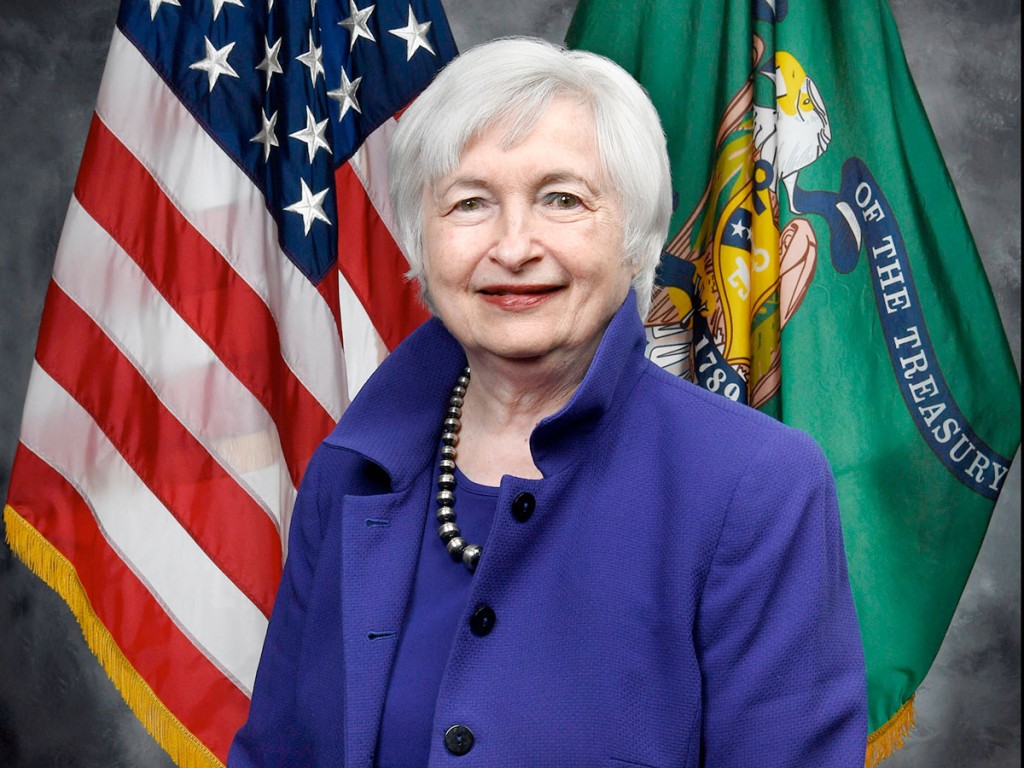Senior US and Chinese officials discussed US economic sanctions and tariffs Tuesday amid reports the Biden administration is close to rolling back some of the trade levies imposed by former President Donald Trump.
The lifting of tariffs and sanctions and the fair treatment of Chinese enterprises are areas of concern to China, Vice Premier Liu He told US Treasury Secretary Janet Yellen in a video call Tuesday morning Beijing time, according to a statement from China’s Ministry of Commerce. The two officials last spoke in October.

According to China, the two sides discussed economic policy and stabilizing global supply chains, agreeing that it’s significant for the US and China to strengthen communication and coordination in those areas for the benefit of both countries and the rest of the world. The talks were pragmatic and constructive, according to the statement.
The US called the talks “candid and substantive” but the official readout of the meeting didn’t mention tariffs or sanctions. However, it did say that Yellen “frankly raised issues of concern including the impact of Russia’s war against Ukraine on the global economy and unfair, non-market” economic practices by China.
The offshore yuan strengthened as much as 0.2% after China’s statement, before paring gains to trade little changed as of 12:23 p.m. local time. The benchmark CSI 300 Index of stocks fell 0.4% by the mid-day break, underperforming major gauges in Asia.
The call came after reports that President Joe Biden may announce a rollback of some US tariffs on hundreds of billions of dollars worth of Chinese goods as soon as this week. As inflation increases in the US, expectations are rising that the administration will ease some of the taxes to help lower the costs of everyday merchandise.
Senior members of the administration though seem divided about the need to lift tariffs.
Yellen said last month that the administration wanted to reconfigure the tariffs, which “really weren’t designed to serve our strategic interests.” That’s a contrast with US Trade Representative Katherine Tai, who has called the levies “leverage” against China and questioned how much effect removing them would have on inflation.
Since taking office in January 2021, the Biden administration hasn’t held any substantive economic talks with China and hasn’t secured any further trade concessions. Instead, economic policy in Asia has focused on starting a new trade agreement with allies in the region, which is still in its early stages.
Inflation Impact
Analysts say scrapping the tariffs would have only a marginal effect on US inflation and China’s trade, with a possible recession in the world’s largest economy a bigger threat to China’s outlook.
“The tariffs’ negative impact on Chinese exports has been limited and so a reduction in them won’t have too big an impact either,” said Larry Hu, head of China economic analysis at Macquarie Group Ltd. “The impact on US inflation would be limited too—prices in the US didn’t surge, for example, in 2019 when tariffs were in place.”
“The more concerning thing for exports in the short term is a potential US recession,” he said. “With or without the tariffs, China’s export growth will slow down anyway.”
Barclays Plc estimated that if there was a complete rollback of tariffs, the maximum direct effect on US inflation is a one-time reduction of 0.3 percentage point.
Record Trade
The tariffs haven’t achieved the intended goal of slowing down Chinese exports and rebalancing the trade relationship with the US. While China’s economy has been undermined by Covid-related shutdowns this year, exports to the US in the first five months of 2022 still grew 15.1% from a year earlier, after jumping almost 28% in 2021 and 8% in 2020.
Imports rose 4% so far this year, according to official data, putting the bilateral trade balance on track for another record year.
China has repeatedly criticized both US sanctions on its firms such as Huawei Technologies Co. and tariffs on its goods.
US sanctions are “unilateral and protectionist bullying in the name of maintaining the global order,” Shu Jueting, a spokeswoman for Ministry of Commerce, said in Beijing last week.
In June, Shu said China believed lifting all tariffs on Chinese goods would benefit its economy, as well as the US and the world. “Given soaring inflation, the earlier the tariffs on Chinese goods are removed, the earlier consumers and enterprises can benefit,” she said.
Tensions between the world’s two biggest economies have continued to simmer since former President Trump imposed tariffs on Chinese exports from 2018, with most of the levies coming after an investigation concluded China stole intellectual property from American companies and forced them to transfer technology.
China retaliated with its own taxes on US goods, and although a deal was signed in January 2020, China never met the agreed upon purchase requirements.

Follow us on social media: